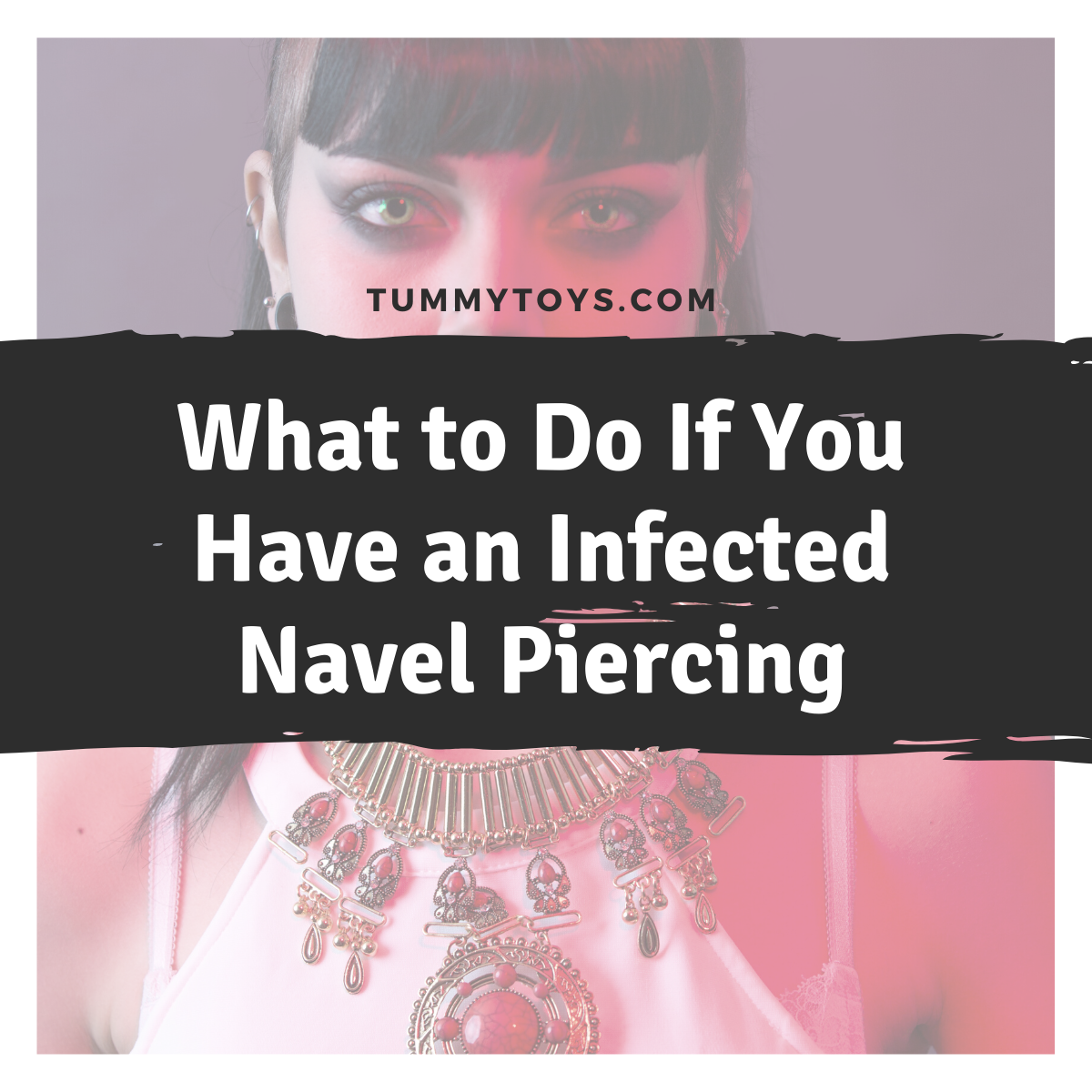What to Do If You Have an Infected Navel Piercing
Posted by Melissa Morganite on
The large majority of navel piercings heal without any issues whatsoever. However, it’s also not uncommon to develop an infected navel piercing if you don’t take proper care of your piercing.
Some of the most tell-tale signs of an infected navel piercing include: considerable redness and swelling, colored discharge, and streaks of red lines originating from the piercing hole. These are all fairly common symptoms that shouldn’t be ignored.
- Note: Minor to moderate swelling/redness occurs in all piercings and usually aren’t signs of infection (unless the redness and swelling are very pronounced).
Navel piercing infections fall into one of two types: bacterial or allergic. Bacterial infections are usually caused by improper care, maintenance, and cleaning of the piercing.
They can also be caused by dirt and/or a foreign object getting into the piercing. Allergic reactions are almost always caused by a sensitivity to the metal used in the piercing jewelry.
How to Treat an Infected Navel Piercing?
If you feel that your navel piercing is infected, there are a few methods that you can use to treat it:
- Cleaning the piercing with a saline/saltwater solution (no more than twice per day).
- Use a compress on the infected navel piercing (which serves to help drain out pus/liquid buildup). Warm compresses can also help with the swelling that’s associated with infected navel piercings.
- Applying an antibacterial cream (most pharmacies sell OTC creams) can help speed the navel piercing healing process along. However, don’t use antibacterial creams if you have sensitivities to them, otherwise your infection could become worse.
When You Should Go to the Doctor
If you’re unable to treat the navel piercing infection via the methods we’ve outlined above, you should make an appointment with your doctor. If you experience any advanced symptoms of infection (e.g. fever), you should go to the doctor as soon as possible.
- The doctor will most likely prescribe some antibiotics and/or topical antibacterial medication for you to use. Most navel piercing infections take no more than a few weeks to clear up.
However, most of these complications can be avoided entirely by maintaining the cleanliness of your piercing (especially after it’s just been pierced).
- Cleaning and sanitizing your piercing, and not irritating it are the most essential ways to prevent a navel piercing infection from developing.
If you want to learn more about infections and navel piercings, our infected belly button piercing guide goes more in-depth regarding belly ring infections.

